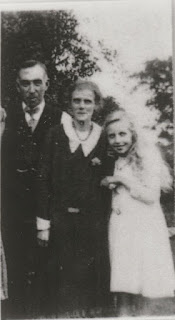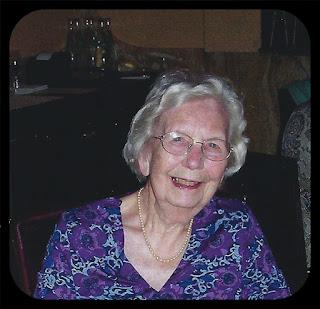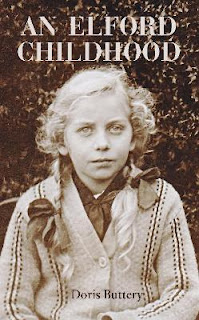In my latest novel, Dark Observation, my character Heather learns of a secret organisation that thrived in
Nazi Germany. Known as the Vril Society, this all-too-real, strange, and sinister
group had its foundations in, of all things, a novel called The Coming Race
penned by British author, Edward Bulwer Lytton and published in 1871. In his
story, Lytton writes of a race of super-beings who lived in caverns deep below
the earth’s surface. They were possessed of a special force of energy known as
‘vril’ and called themselves ‘Vril-ya’. They possessed the
ability to communicate with humans by connecting with them through various
portals in the earth.
That supposedly intelligent adults would
believe in this may seem incredible to us today, but we need to put these
beliefs into the context of the time and circumstances in which such conviction
could take root.
Germany and Austria suffered bitter
humiliation and defeat at the end of the First World War. The Austro-Hungarian
Empire was broken up and the two countries who had fought on the losing side
were crippled by impossible reparations extracted by the triumphant Allies.
Everything was done to crush the spirit and any form of national pride in
Germany and all that was left of Austria. The problem is that history teaches
us that when a nation’s spirit is suppressed, it tends to retaliate with whatever
means are available to it. Among the most common manifestation of this is that
extremist factions are formed.
By 1919, German playwright, Dietrich
Eckart was a radical thinker. Like many of his compatriots, he came from the
wealthy middle-class and he met Hitler in 1919 when the latter attended a talk
at the German Workers’ Party on 12 September. Along with Gottfried Feder and
Alfred Rosenberg, Eckart was impressed when Hitler stood up to speak. None of
his ideas was especially new. He talked of the need to build a Greater Germany,
incorporating Austria, Danzig and all German-speaking people. Essentially, he
spoke of the German nation as one, superior race. At this time though, his ideas
of a superior race, and anti-semitism were somewhat vague and a ‘work in
progress’. Soon though, he would meet men who would provide the foundations of
his future destiny.
Leader of the German Workers’ Party at the
time, Anton Drexler, made sure he obtained Hitler’s address before he left that
12th September meeting and, the following day, Adolf Hitler became
the fifty-fifth card-carrying member of the party.
Eckart knew that the German Workers’ Party
in its present form could not become a mass movement without a charismatic
leader - one with the gift of oratory. In Adolf Hitler he saw that man and
became his mentor, grooming him carefully for future leadership. He incorporated
a number of occult ideas and practices into his eager student’s curriculum and
introduced Hitler to three magical orders: The Thule Society, The Armanen
order, and The Vril Society. These groups – and others – provided the genesis
of Nazi ideology and the emergence of the vision of an Aryan Super-Race. Of
these three, it was the Thule Group (who believed in the old Norse myths of
Hyperborea and Thule the descendants of whom were, according to Thule Group
members, ancestors of the Aryan race) and the Vril Society.
At the age of 30, Eckart persuaded Hitler
to join the Vril Society and, from then on, there was no turning back. The Vril
Society had found its man, and now it could begin to construct a New World
Order. Hitler began to emerge as a confident and powerful speaker, with
unshakeable belief in his ability to direct the entire force of his personality
(by harnessing vril power) in order to influence events
Mein
Kampf illustrates just how closely he
adhered to the beliefs and principles of the Vril Society. Over the next few
years, other members came to include those in his closest circle, people such
as Hess, Himmler and Goering.
The Vril Society and its heinous adherents and offspring was founded on a bedrock of myth and legend and shows us how much devastation can be wrought when people are hungry, demoralized, desperate and searching for a leader to inspire them out of their sense of hopelessness.
All these many years later, radical organisations, owing much to the Vril Society and Nazi dogma, continue to thrive.
Edward Bulwer Lytton died in 1873, so was spared the unedifying sight of his work of fiction adopted and appropriated as a kind of textbook for one of the darkest times in world history. However, even at the time, groups such as the Theosophists seriously mooted as to whether his science-fiction was actually fact. Had Lytton been contacted by the Vril-ya?
As a little aside to ponder on, Lytton originated a number of phrases we still stumble across today. gems such as; ‘the great unwashed’, ‘the pen is mightier than the sword’, oh and lest we forget, ‘It was a dark and stormy night…’
Night after night the bombs rain down, yet Violet has far more to fear than air raids. A mysterious man, a room only she can see, memories she can no longer trust, and a best friend who denies their shared past... Something or someone - is targeting her.
Nik Keevil and Flame Tree Studio
Shutterstock
Author’s own









